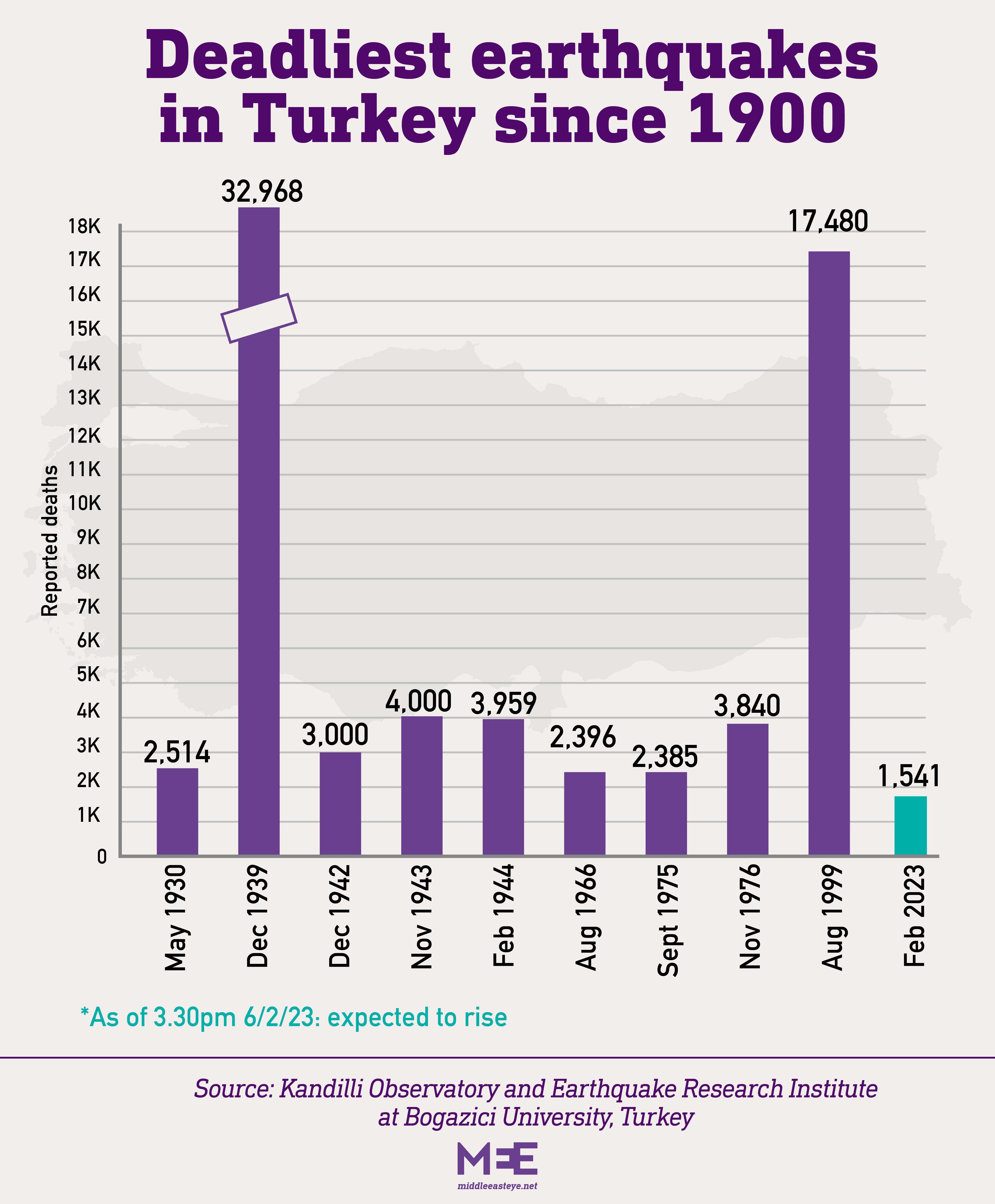Turkey earthquake: Trapped victims cry for help on social media

“I’m under debris, please help.”
It didn’t take long after the devastating earthquake that ripped through southern Turkey and northwestern Syria on Monday morning for desperate appeals like this to flood social media.
Those unable to contact their loved ones began posting too: images of their relatives and their addresses, pleading for someone to see if they can be found.
The scheme did have some success. One man tweeted that he, his mother and his brother were under rubble in Hatay, one of the worst-hit cities near the Syrian border. After receiving thousands of retweets in less than hour, the family was rescued by people living nearby.
'Please help! We are under debris. There are many people here'
- Trapped Turkish man
Another man also posted his address. “Please help! We are under debris. There are many people here,” he appealed. One hour later, he announced that he and his mother had been rescued, but his father was not as fortunate.
Stay informed with MEE's newsletters
Sign up to get the latest alerts, insights and analysis, starting with Turkey Unpacked
By Monday evening, at least 1,498 people had been killed in Turkey by the 7.8-magnitude earthquake, and another 810 fatalities were confirmed over the border in Syria.
As trapped victims shared their location, Kagan Sarikaya, a Turkish political scientist, and his team began collecting the information for creating a map.
They marked the addresses of people who were still waiting to be rescued, and shared it on Twitter.
Phone lines and internet connections have occasionally collapsed, keeping people in fraught suspense.
Mehmet Solmaz, a London-based Turkish journalist, shared the address of his relatives residing in Kahramanmaras, the epicentre of the earthquake. No rescue team was able to reach the scene for hours, and eventually he revealed that four of his relatives had died, with hopes the others could be saved.
Merve, a childcare nurse, was hopeful, as her sister managed to send a photo of herself under rubble nearly 12 hours after the earthquake. Someone on Twitter suggested she use an emergency app that shares locations with rescue teams and emits a loud alarm. But the app, which was developed by the Disaster and Emergency Management Presidency, failed due to overwhelming use.
Her sister was rescued and hospitalised, but Merve’s anxious wait for her brothers and father continued.
Online mobilisation
Social media has also been a place to vent, with many criticising the authorities’ response. Yet rescue teams themselves have also been trapped under rubble, as aftershocks and another large quake hit southern Turkey and northwestern Syria.
As nighttime began to fall and the already freezing temperatures plunged, aid groups and local initiatives mobilised online.
Haluk Levent, a rock singer and founder of the Ahbap (“dude” in Turkish) charity organised the arrival of two trucks for hygiene needs as well as clean water. In some cities, officials warned people not to use tap water because of the possibility of contamination. Ahbap also created a map, which shows the location of shelters.
Yet there are not enough shelters, with millions of people in the region affected. Some footage on social media showed people waiting under heavy snow for help.
One heartbreaking video came from the city of Malatya.
Patients of a nursing home had managed to evacuate the building, yet were seen lying without adequate clothing on plastic mattresses in the snow as most of them were disabled and unable to move.
With no nearby shelters, their nurses feared they would lose their patients to hypothermia.
This article is available in French on Middle East Eye French edition.
Middle East Eye delivers independent and unrivalled coverage and analysis of the Middle East, North Africa and beyond. To learn more about republishing this content and the associated fees, please fill out this form. More about MEE can be found here.






